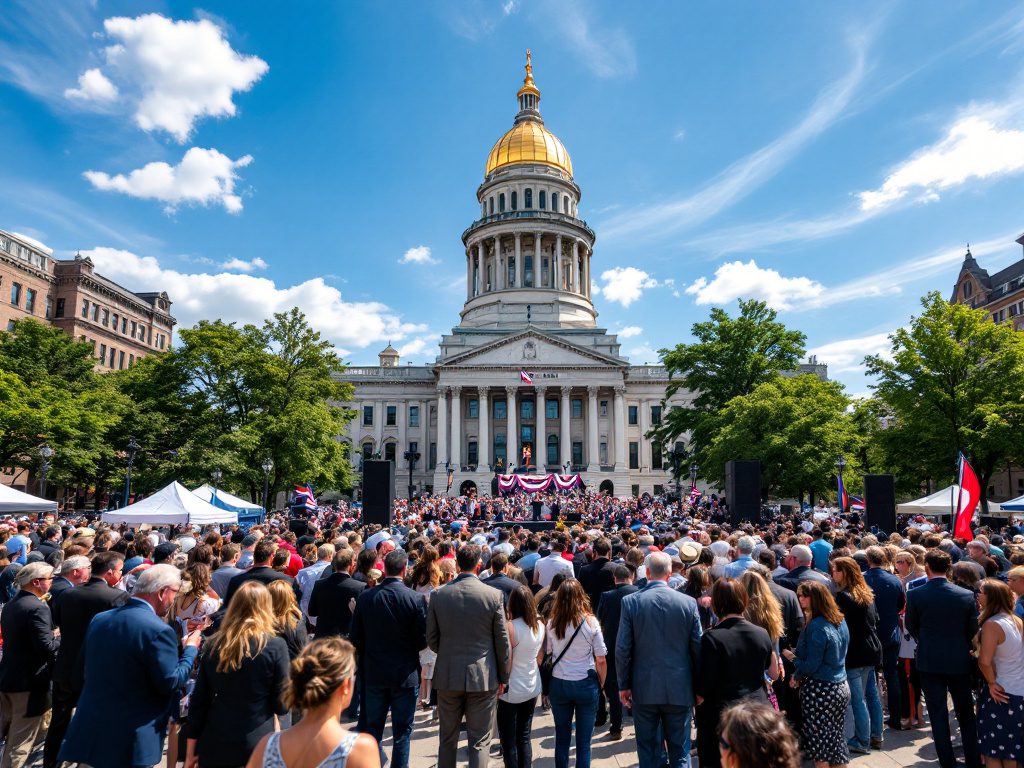Buttigieg’s Iowa Return: A Calculated Comeback
After a season of relative quiet, Pete Buttigieg is stepping back onto the national stage—and he’s chosen Iowa as his arena. In an event sure to send political pulses racing, the former Transportation Secretary and 2020 Iowa Caucus standout will headline a town hall in Cedar Rapids on May 13, his first public appearance since leaving the Biden administration. The subject: veterans’ issues in an America reshaped by the Trump-Vance White House.
You might wonder: Why Iowa, after the state lost its first-in-the-nation Democratic primary status post-2020? For a political figure with presidential aspirations—as Buttigieg is widely rumored to have—Iowa still looms large. Its political landscape, marked by swing-state sensibilities and the memory of a razor-close, app-hobbled Democratic caucus, makes it fertile ground for testing messages and reconnecting with the heartland that gave Buttigieg his delegate edge in 2020.
His partner in this venture, VoteVets Action Fund, is no stranger to progressive-leaning veterans’ advocacy. The group’s mission—raising veterans’ voices on policy—aligns with Buttigieg’s own military service and fiercely won reputation for pragmatic, solutions-oriented dialogue. According to VoteVets, the town hall aims to shed light on how the policies of the Trump-Vance administration have made “Americans less prosperous and less free,” particularly focusing on the economic, health, and democratic impacts on veterans.
Harvard’s Professor Elaine Kamarck, an expert on Democratic primary politics, told CNN, “For Democrats looking to test the waters in hostile territory—or at least, unfamiliar currents—Iowa’s a natural launchpad, no matter its official place in the nominating calendar.” Buttigieg’s team, conscious of the optics, has billed the event not just as a rehash of old battles, but as a substantive conversation with “all Iowans worried about the direction the country is headed.”
Veterans, Values, and the Trump-Vance Challenge
Buttigieg’s town hall arrives at a moment when the stakes for America’s veterans feel particularly acute. The Trump administration’s rhetoric has often clashed with veterans’ organizations over everything from VA funding to mental health programs. Critically, groups like VoteVets have asserted that Trump-era policies—and early moves under J.D. Vance’s vice presidency—have undermined the hard-won stability of military families.
A closer look reveals that Buttigieg is not only expected to critique these recent policy shifts, but to offer a compelling progressive alternative. His approach—grounded in lived military experience and a belief in government’s power to safeguard the vulnerable—stands in marked contrast to a conservative movement that’s often prioritized budget cuts and privatization over robust public investment.
The stakes couldn’t be higher for the Democratic Party. According to Pew Research, veterans consistently trend more conservative than the general public, but issues like healthcare access, job retraining, and VA hospital modernization resonate across the aisle. Buttigieg’s team seems attuned to this, crafting an event format that invites participation from Republicans and independents alike, without sacrificing progressive core values.
“How we treat our veterans is a measure of our national character—if we abandon those who served, we abandon the soul of our democracy.”
This principle stands at stark odds with what Buttigieg and his allies describe as recent harmful decisions—rollbacks to VA funding, slow-walking of crucial infrastructure projects, and partisan attacks on veteran support organizations. Emerging data from the RAND Corporation supports this concern, highlighting a correlation between diminished veterans’ services and increased rates of homelessness and suicide among ex-military personnel.
Is this the kind of America we want? Or is there a better path forward—one that not only honors service, but delivers genuine support after the uniform comes off?
A Broader Political Dance: Building Alliances—And a National Platform
The town hall’s location and timing reflect both symbolic and strategic decisions. While Buttigieg’s appearance echoes Democratic tradition, it also signals a tactical shift. Iowa may no longer kick off the Democratic nominating calendar, but its political narrative retains a mythic quality—one helpful for candidates with national ambitions and a need to demonstrate cross-partisan appeal.
Buttigieg’s recent public strategy illustrates this balancing act. Beyond town halls and cable-TV hits, he’s ventured into less predictable territory—like his marathon appearance on the “Flagrant” podcast, an unapologetically unfiltered space known for mingling politics with culture and humor. Such outreach is designed to breach the Democratic bubble and reach voters, especially men and independents, who are often ignored by conventional campaign apparatuses. UCLA political scientist Matt Barreto noted, “Any Democrat who wants to put together a winning coalition in 2028 needs to show up in places where Democrats haven’t always shown up, and talk about issues the base sometimes forgets.”
National news cycles haven’t exactly let Buttigieg fade into obscurity. His name splashed across headlines earlier this year, thanks to a public jab from Donald Trump, served as an inadvertent gift—reminding Americans of Buttigieg’s willingness to stand up to bluster. Even after taking himself out of the running for an open Senate seat in Michigan, speculation swirls around a 2028 presidential bid, heightened by every public appearance and each move to broaden his profile.
Buttigieg’s Iowa trip—centered on the core progressive ethic of supporting those who’ve served—is as much about substance as symbolism. Here, in the heartland, he’s seeking not only to reclaim Democratic lost ground, but to model what a forward-looking, values-based campaign might look like. At a time when so many Americans are losing faith in their leaders, this kind of outreach offers a glimmer of the politics of possibility over the politics of grievance.

